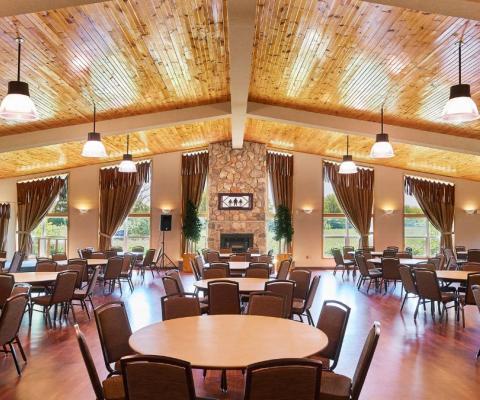With the contributions of the Six Nations Polytechnic Board, staff, the Indigenous Knowledge Guardians, Associate Professors, and broad community support including the Charter by BCR in December 2009, we are well on the way to becoming a centre of excellence for Hodinohso:ni studies’ and research.
As part of this success, we would like to acknowledge and thank our 21 post-secondary education and collaborative partners for their continued and future support.
University and College Partners
- Brock University
- McMaster University
- Mohawk College of Applied Arts and Technology
- Niagara College
- Queen’s University
- University of Guelph
- University of Waterloo
- University of Western
- Wilfrid Laurier University
Indigenous Post-Secondary Institute Partners
- Anishinabek Education Institute
- First Nations Technical Institute
- Iohahi:ho Adult Education
- Kenjgwewin Teg Education Institute
- Oshki-Pimache-O-Win Education and Training Institute
Collaborative Partnerships
- Centre for International Governance Innovation, Wilfrid Laurier and the University of Saskatchewan
- Indigenous Knowledge Guardians and Scholars
- Six Nations Language Commission
- Six Nations Legacy Consortium
- Six Nations Women of the Grand River Project
- The Brantford Consortium (Wilfrid Laurier, YMCA of Hamilton/Burlington/Brant, Mohawk College, Nipissing University)
- Woodland Cultural Centre
Committees and Membership
- Six Nations Polytechnic is a member of the Six Nations Ethics Committee
- Six Nations Polytechnic is a member of the Aboriginal Institutes Consortium.
- SNP also served on the Steering Committee, Six Nations of the Grand River Project Women’s Project and the Cultural Experience Strategic Action Plan.
Funders
The Government of Canada, under the Aboriginal Language Initiative programming element of the Aboriginal Peoples’ Program, funded three projects under this initiative for 2014-2015: conversational courses in Mohawk and Cayuga, camps in Mohawk and in Cayuga for March break, and the development of a Mohawk Language in the Workplace lesson book with audio.
The Aboriginal Health Human Resources Initiative (AHHRI) of Health Canada funds programs and projects that increase the number of Aboriginal people working in health careers; adapt health care educational curricula to support the development of cultural competencies, and improve the retention of health care workers in Aboriginal communities.
The Ministry of Advanced Education and Skills Development
Grand River Post Secondary Education Office – Tuition
Board policy is based on the belief and vision that acquiring knowledge, skills, capabilities and confidence empower individuals to be self-sufficient and contribute to their communities and society at large. Post-secondary education provides a path to do this.
- The Ontario Trillium Foundation is a long-standing contributor to SNP. Their support continues to advance Indigenous knowledge and post-secondary education in the Six Nations community.
Science Education and Employment Development (SEED)
Funding for SEED projects flows from an agreement between Six Nations and Imperial Oil. The projects contribute to life-long learning through a focus on enhanced math, science and technology education.
Six Nations Community Development Trust
Trustees administer the Trust in accordance with the terms set out in the Six Nations of the Grand River Community Development Trust, to enhance, among other things the growth and capacity of the First Nation in respect of community development, health.
Aboriginal Postsecondary Education Training & Literacy and Basic Skills
Ontario’s Aboriginal Post Secondary Education Strategy will help more First Nations, Métis and Inuit students achieve their full potential. The strategy includes initiatives that support learning and achievement for Aboriginal students. It will also help raise awareness about First Nations, Métis and Inuit cultures, and histories, and perspectives in schools.
Aboriginal Affairs and Northern Development Canada
Through the Indian Studies Support Program (ISSP) provides funding to promote access to quality First Nations Post-Secondary learning programs for First Nations learners and provides funds directly to Aboriginal Institutions such as Six Nations Polytechnic.
